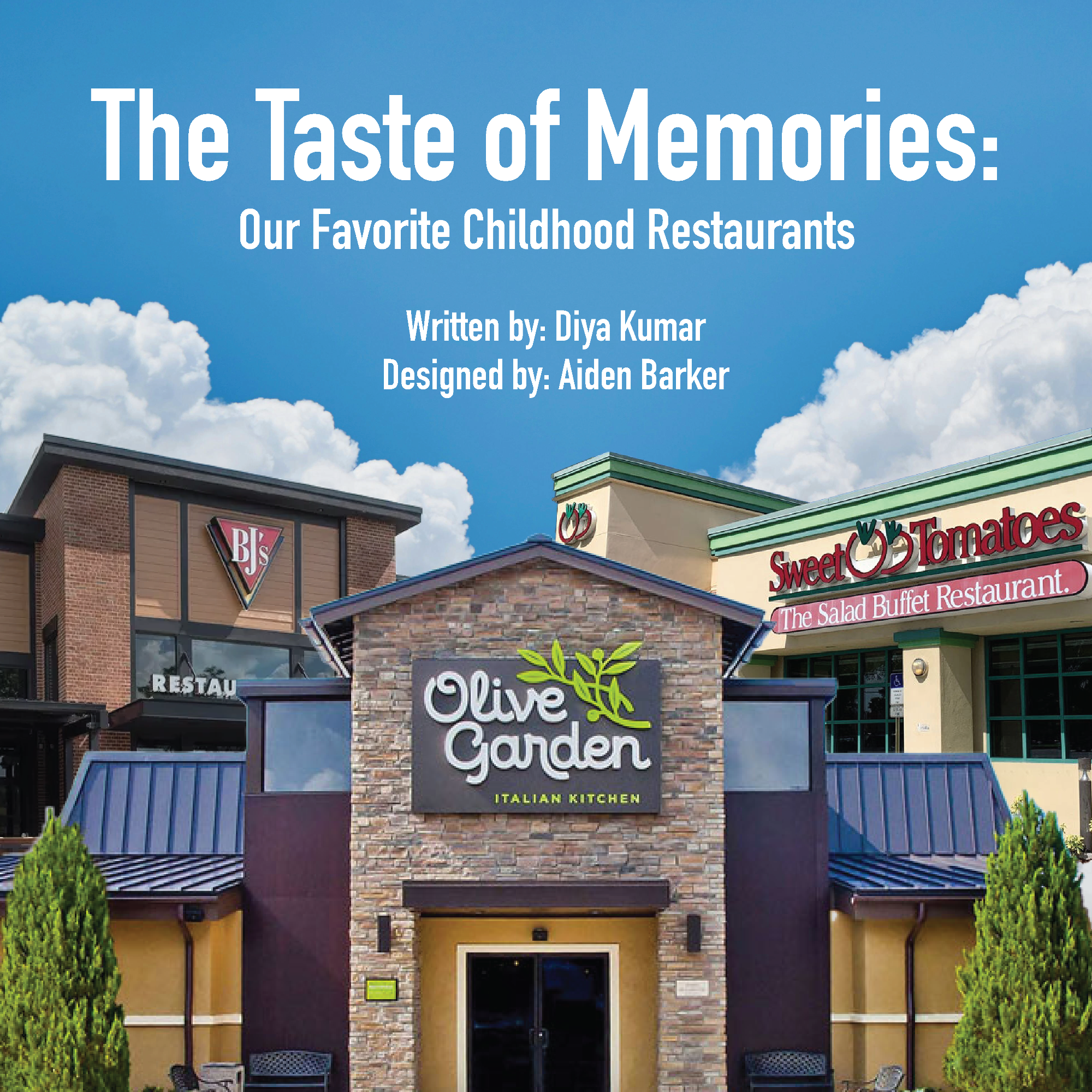
We forget a large portion of our childhoods. We forget many random memories. Sometimes, we scroll through pictures and reminisce, but we don’t really remember many details of the moment. When I look back, I don’t remember a lot from before I turned 10.
Despite this, I have a constant sense of nostalgia for the ages that passed by too fast and I wish I could go back to. When I’m nostalgic, my memories often flicker to restaurants I frequented as a child. I have tied distinct memories to these restaurants — specifically Olive Garden, Sweet Tomatoes and BJ’s Restaurant & Brewhouse. These are the restaurants where I celebrated my birthdays and special events with my family. These restaurants are associated with important rites of passage and moments I will never forget.
The food items served at these restaurants are linked to nostalgia. Research shows that the foods we were introduced to as children are the foods that influence our cravings later on in life. The Proust Phenomenon illustrates how distinct scents can unlock specific memories. This phenomenon is supported by the roles of the amygdala and hippocampus in our brains, which control emotions and store memories. This isn’t just “nostalgia,” it’s scientific fact that taste and smell can evoke wistful emotions
If we look at this from a psychological point of view, we can better understand why these food items are so important to us. Psychologists have determined that food memories are more memorable as they are linked to all five senses. Not only are you tasting the food, but you’re looking at it, feeling it, smelling it and even hearing it. All these stimuli create extremely long-lasting memories. Memories that evoke all 5 stimuli are often the most remembered and cherished.The emotional associations we have as children as we eat food also influences our relationship with food. We associate foods with certain good or bad memories we had as children and the role of food can even have an impact on navigating life experiences. I know for a fact that my memories with food have had a positive impact on my life experiences.
I have vivid memories of eating at Sweet Tomatoes, skipping around, ignoring the vegetables and going straight to the mac and cheese bar. Despite the unfortunate closure of this restaurant, I still love and consistently order mac and cheese at restaurants. I visited Olive Garden as a child on all special occasions, and I loved every single bite of the mediocre pasta. It didn’t matter that the food wasn’t the best I’d ever had, the breadsticks and the salad offered along with the meal were enough. This was practically a five-course buffet for younger me. At BJ’s, I was always excited to get dressed up and feel like an adult in the fancy booths. I’d be excited to order a deep-dish pizza or a pizookie for a special occasion. As I grew older, I visited these restaurants less and less, but the foods associated with them remained dear to my heart.
Right before college, I visited Olive Garden and BJ’s with my close friends. It was fitting — the people I love now with the places I loved as a child. It was almost a little goodbye to my childhood and to high school: one last glimpse of the restaurants I’d frequented as a child. Unconsciously, I think I was hoping to hang on to my childhood for as long as physically possible. In a strange way, these visits helped me do that. My friends and I reminisced about how we hadn’t been to Olive Garden in ages and how we used to go as children; it was a little bitter, but also the start of a new chapter. These restaurants and their food items are more than sustenance. Food items are linked to almost every important function of our body — biological, physical and emotional. We need food to survive and perform daily tasks, but beyond that, food serves as an important, everlasting link to our past. All these flavors are comforting to me because they remind me of my childhood. They are my comfort foods, and the foods I enjoyed as a child are the ones I will automatically gravitate toward when I’m seeking comfort. I link these foods to a time when everything was simple. My biggest problem used to be “what should I eat today?” It is no longer that.